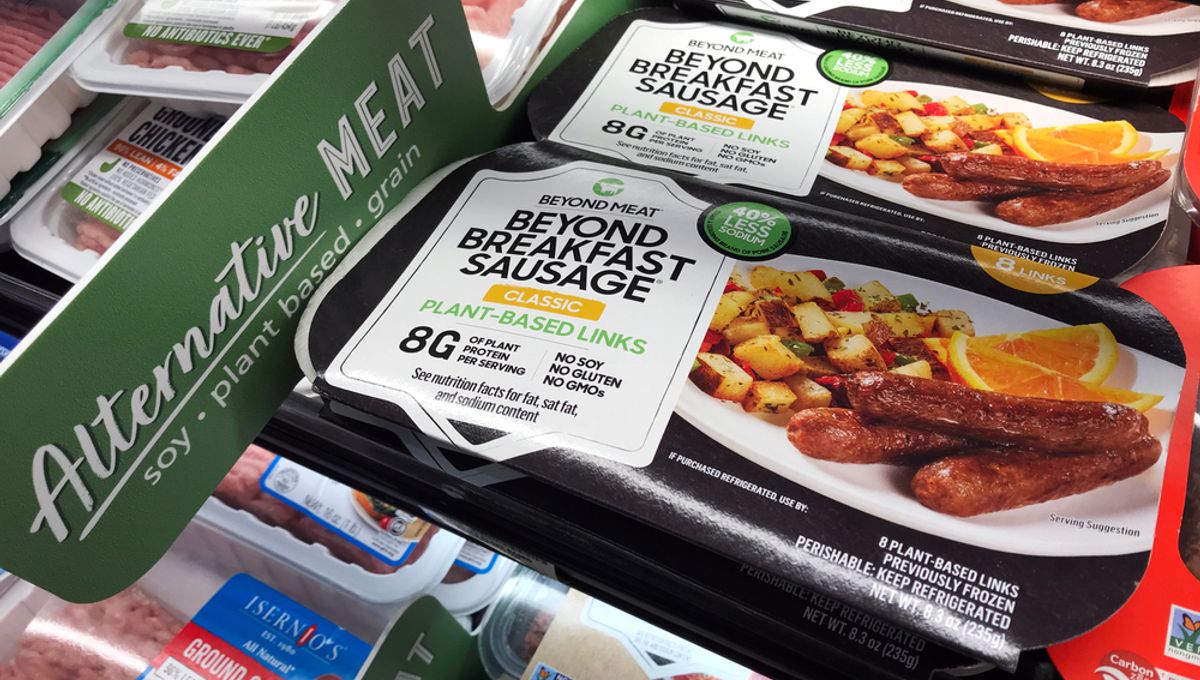
The popularity of plant-based food has skyrocketed in recent years, as has the number of studies investigating its impact on our planet. Unfortunately, there are still massive gaps in our knowledge when it comes to the health implications of these products, particularly surrounding the nutritional value of plant-based meat substitutes. A study, from Chalmers University of Technology in Sweden, has set out to address this by analyzing the nutritional contents of different meat alternatives available in the country.
It finds that many of the options, which claim to contain a high content of nutrients such as iron and zinc, actually contain very little in a form that can be readily absorbed.
“Among these products, we saw a wide variation in nutritional content and how sustainable they can be from a health perspective,” lead author Cecilia Mayer Labba said in a statement.
“In general, the estimated absorption of iron and zinc from the products was extremely low. This is because these meat substitutes contained high levels of phytates, antinutrients that inhibit the absorption of minerals in the body.”
Phytates, also known as phytic acid, are found in lots of plant-based foods including seeds, nuts, grains, and legumes. They bind to certain minerals in the digestive tract and block their absorption in the intestine, which can lead to mineral deficiencies over time. However, this is only really an issue for people whose diet is already lacking nutrition and is rarely a concern for people following a well-balanced diet.
During protein extraction when making meat substitutes, phytates can accumulate. “Both iron and zinc also accumulate in protein extraction. This is why high levels are listed among the product’s ingredients, but the minerals are bound to phytates and cannot be absorbed and used by the body,” Mayer Labba added, explaining the discrepancy between food labels and actual nutritional value.
The team analyzed 44 meat substitutes available in Sweden for their dietary fiber, fat, iron, zinc, phytate, salt, and protein content, as well as for their amino acid and fatty acid composition. These products were largely made from soy and pea protein, but also included tempeh and mycoproteins, which are derived from fermented soy and fungi, respectively.
“None of the products could be regarded as a good source of iron due to very high content of phytate… and/or low content of iron,” the study authors write. However, of the products tested, tempeh performed the best for iron, having a content similar to that claimed on the packaging, and was found to have a lower phytate content. Mycoprotein, meanwhile, was found to be rich in zinc and also low in phytate.
Their findings may paint meat alternatives in a generally unsavory light, but rather than suggest people shun them altogether, the researchers suggest that those following a plant-based diet simply “meet their iron needs through other sources”. They also call for improvements in the industry.
“We believe that making nutrition claims on only those nutrients that can be absorbed by the body could create incentives for the industry to improve those products,” said co-author Ann-Sofie Sandberg.
“Plant-based food is important for the transition to sustainable food production, and there is huge development potential for plant-based meat substitutes,” Mayer Labba concluded.
“The industry needs to think about the nutritional value of these products and to utilise and optimise known process techniques such as fermentation, but also develop new methods to increase the absorption of various important nutrients.”
The study is published in the journal Nutrients.
Source Link: Veggie Meat Substitutes Might Not Be As Nutritious As They Claim